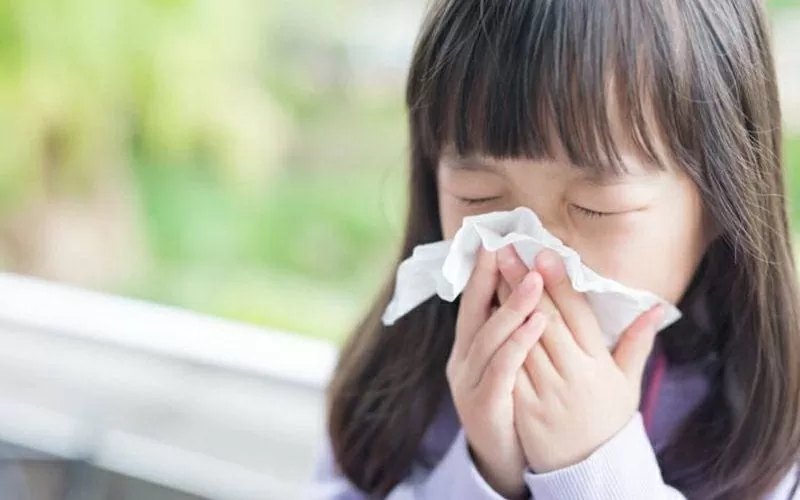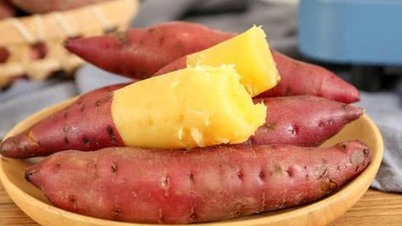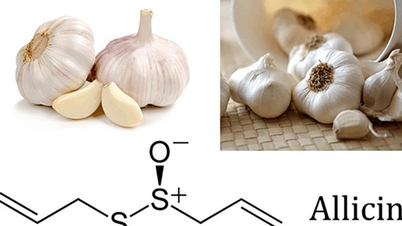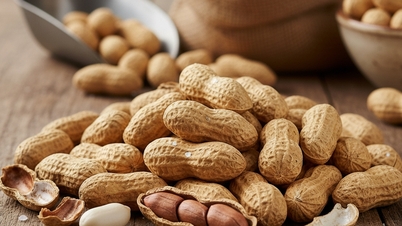 |
| When children have influenza A, limit their intake of junk food, processed food, foods high in fat, carbonated drinks, soft drinks and dairy products. (Source: Vinmec) |
Nutrition plays an extremely important role in preventing and quickly recovering when children have respiratory diseases, including influenza A. To prevent the flu, parents should give their children hot, warm dishes; add spices with natural antibiotic effects such as garlic and turmeric.
Master, Doctor Tran Thu Nguyet, Vietnam Institute of Applied Medicine, said that children's diet to increase resistance needs to follow basic principles: Eat enough starch, animal protein, fat; balance the ratio of oil and fat and pay special attention to some of the following foods:
Foods rich in vitamin A
Not only does vitamin A have many benefits for visual development, it also helps protect children's bodies from the risk of infection, limiting the invasion of viruses that cause respiratory diseases.
Vitamin A strengthens epithelial cells and increases mucus in the respiratory system, preventing bacterial and viral attacks, so it is very effective in preventing respiratory diseases such as seasonal flu.
Vitamin A is abundant in dark green vegetables, red and yellow fruits such as: papaya, watermelon, persimmon, grapefruit, oranges, tangerines, carrots, pumpkin, sweet potatoes, tomatoes, red spinach... or in foods such as salmon, avocado, yogurt, cheese...
Vitamin C
Vitamin C is an important antioxidant that helps maintain overall health, is necessary for the functioning of immune cells, strengthens children's immune system and resistance, and prevents colds.
Fruits rich in vitamin C include: oranges, tangerines, grapefruit, watermelon, guava, lemon... Children can eat fruit directly or drink juice.
Note that vitamin C is abundant in daily fruits and vegetables, but many children do not like to eat them. Therefore, parents should find ways to make vegetables and fruits more attractive, diversifying the types of vegetables and fruits to make them easier for children to eat. If children still do not like them, you can cut the vegetables into small pieces, mix them into porridge, powder or prepare them separately to encourage children to eat.
Animal protein
Animal protein contains a lot of protein that participates in the immune system, helping children increase their resistance. Therefore, eating enough protein will help children prevent diseases better, especially young children.
Parents should supplement protein-rich foods such as: Beef (richest in protein among meats), pork, chicken, shrimp, crab, eggs, etc. These foods provide essential amino acids, iron and vitamin B12, helping to increase the ability to prevent respiratory diseases and seasonal flu in children.
Add fiber
Fiber from green vegetables, fruits and nuts is good for the digestive system, strengthens the immune system and lung function.
According to the World Health Organization (WHO), fiber needs vary depending on age: Adults need 20-22g/day, children only need about half that amount. Because children are often not interested in foods rich in fiber, parents should prepare a variety of foods to help children absorb enough of this substance from many different food sources.
Foods to limit
Doctor Nguyet also noted to limit children's intake of snacks, processed foods, foods high in fat, carbonated drinks, soft drinks and dairy products.
“Although dairy products do not cause increased mucus production, they can make phlegm thicker, making it difficult to cough and swallow. However, the relationship between milk and mucus production is unclear and varies from person to person,” said Dr. Nguyet.
Source: https://baoquocte.vn/tre-mac-cum-a-nen-an-gi-va-khong-nen-an-gi-334422.html






































![[Photo] General Secretary To Lam and National Assembly Chairman Tran Thanh Man attend the 80th Anniversary of the Traditional Day of the Vietnamese Inspection Sector](https://vphoto.vietnam.vn/thumb/1200x675/vietnam/resource/IMAGE/2025/11/17/1763356362984_a2-bnd-7940-3561-jpg.webp)







































































Comment (0)